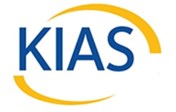The EHCP Team can be contacted via a dedicated email address.
- Local Offer Home
- Information and Advice
- Education, Health and Care Plans (EHCP's)
How long does my Education, Health and Care plan last?
EHCP’s can stay in place and provide support in an educational setting up age 25, however there are reasons why the local authority can stop, or cease the plan before then:
- The young person no longer requires the support of an EHCP (that is, additional support above and beyond what is normally available in an educational setting). This is something that will be discussed at an EHCP review. It could be that the young person has met the long-term outcomes in the plan, or that they are moving into employment and will not be accessing education anymore. It can simply be that the young person makes the decision that they no longer want the support of an EHCP or that they do not want to remain in education. If the young person is over 16, they can make the decision for their EHCP to cease. P. At this stage, those people involved with the young person may need to consider whether the young person has the capacity to make such a decision, remembering that poor decision making does not mean that the young person has a lack of capacity. *see note*
- The young person is studying for a level 4 qualification (called a Higher Education Level qualification). There are separate systems in place to support young people in Higher Education, for an example of this have a look at this page from Huddersfield University - Learning Support - Huddersfield University (opens new page)
*Mental Capacity Assessments. When the young person does not have the mental capacity to make a decision about their EHCP (see the page about “Making choices when you have a learning disability - The Mental Capacity Act” insert link) then decisions about the EHCP will be made by a responsible adult, usually the parent or carer.
The decision to cease an EHCP is usually made at an EHCP review, it is important at the review to discuss and agree a clear path onto the next step, should that be employment, college, training or moving in to adult social care. Annual reviews of the EHCP should have been helping the young person plan their journey to adulthood using the Preparing for Adulthood themes. EHCP Review Information page.
If the young person’s EHCP is ceased when they move out of education, their health and social care provision should not be affected.
What happens when I turn 25?
If a young person is still supported by an EHCP when they are 25, the plan should not finish until the end of the academic year in which they turn 25. So, if you were 25 in January and still receiving the support of an EHCP, the plan would cease at the end of the academic year in July.
What happens when a EHCP plan is ceased?
When it is decided that an ECHP is no longer needed, the Local Authority will write to the young person or the parent/carer explaining that they are planning to cease (or stop) the EHCP. The Local Authority will not stop the EHCP straight away, the letter will explain that the young person or parent/carer has 2 months to appeal this decision to cease the plan.
The young person or parent/carer can discuss this with the Local Authority if they do not agree and if needed appeal to the SEND Tribunal. Kirklees Information Advice and Support Service (KIAS) can support the young person and their family with this. KIAS website (opens new page)
For more information about Tribunals and the legal process see the IPSEA website (opens new page)
The council work hard to include young people's & parents/carers ideas and views in a plan and give opportunities for changes to be made. When a new or Amended EHCP is produced, an opportunity is always provided to consider changes. The LA will send out a Draft EHCP (for new assessments) or a Amended Draft (for existing EHCP's). This is your opportunity to comment on what is in the plan and suggest changes.
If once an EHCP is written (or finalised) and you or the young people when over 16 if they want to make that decision alone, don't agree, you can appeal about what it says in an EHCP.
The initial step that parents/cares or young people can go through is a process called mediation. This is a carefully managed conversation with parents/carers, the council and other professionals to discuss the disagreement and try to resolve it. This is run by another professional called a mediator who helps to keep the conversation on track.
If you are still not happy with the decision made at mediation, then an appeal can be made to the tribunal. This is more formal process where the disagreement is presented to a tribunal judge to make a decision, however the council will work hard to reach an agreement before it gets to the point of needing the judge to make a decision.
Details of how to raise an appeal will be contained in the letter that the LA sends out with the Final EHCP.
More information about appeals and tribunals can be found in the SEND Tribunal Single Route of Redress National Trial document (opens PDF in new window)
For places that can offer support and advice, please go to “Independent Support and Advice” (opens in a new window).
en-GBLast updated: 02/10/2020


